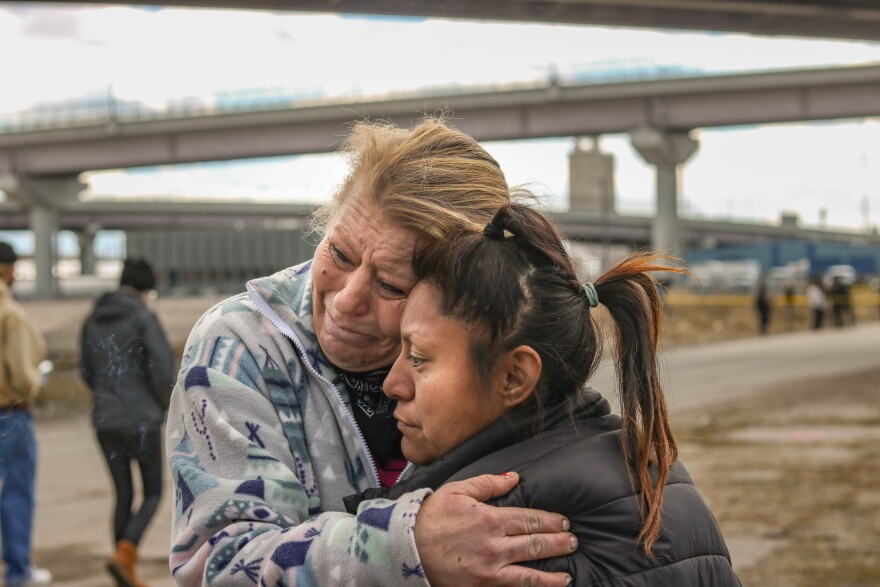Salt Lake County and city officials tore down and cleaned up a large homeless encampment in an empty lot near I-15 Thursday.
Officials said the camp abatements are a measure to address health and safety concerns, but it displaces people, causing them to find a new place to stay.
Residents called the encampment “Fort Pioneer.”
“Because we’re the pioneers of the unsheltered,” said Stacey Johnson, who has been living there with her husband and dogs since last October. “We’re the pioneers of change. And besides, I wanted to give Utah a little thrill.”
Johnson estimated there were more than 100 people living there. She considered it a community, with rules to prevent violence and keep the place clean.
On Thursday morning, she said she intended to stand her ground to protect the camp, even getting arrested if she had to.
As the day wore on, though, she said her husband asked her not to go that far. So, she decided to comply — at least for now.
“There is nowhere for us to go,” Johnson said. “Sanctioned camping is the only option that’s viable. I think that, within a week, we’ll all be back.”
Sanctioned camping is a tough ask. Salt Lake City Mayor Erin Mendenhall has said she doesn’t currently support it. Mendenhall also released a statement in response to Thursday’s abatement.
“We have a responsibility to our residents — housed and unhoused — and businesses to ensure that public spaces are safe, clean and accessible,” she said. “Homelessness is not a crime, but some camps can and do present serious health and safety risks to those living in them and the public at large.”
Andrew Johnston, the mayor’s homelessness policy advisor, said there’s a lot to consider when it comes to sanctioned camping, like funding, a location for the camp and safety.
He said he sees it mostly as a band-aid solution.
“There has to be an end game for housing,” Johnston said. “Otherwise, a tent or a group of tents together becomes permanent. And that shouldn't be our goal.”
But he acknowledged there aren’t many options. The three homeless resource centers in Salt Lake County are nearly full, and according to staff members, the winter overflow shelters are in a similar position.














